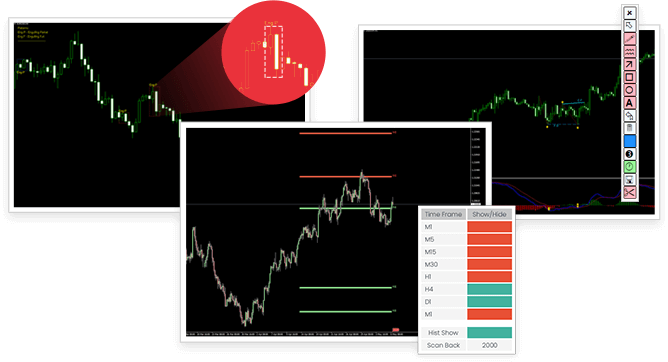Comprised of hydrocarbon deposits and various organic materials, crude oil is a naturally occurring unrefined petroleum and fossil fuel that can be processed to serviceable products like gasoline, diesel, jet fuel, and variations of petrochemicals.
Crude oil is classified as a nonrenewable resource due to our inability to replace naturally occurring oil at the rate we consume, therefore, creating an element of scarcity.
Considering how this commodity is the primary source of energy production, many economists concur that oil is the most vital commodity in the world.

Traded in the world-wide market in the form of spot contracts and derivative contracts, crude oil is a global commodity.
The least common form of trading this commodity amongst traders would be spot contracts, where the money is exchanged while the purchaser accepts a date of delivery. It is well-known, however, that spot contract oil traders don’t truly intend to receive tangible oil but more or less take advantage of the immediately executed commodity contract, as a result, futures contracts tend to be traded more frequently.
When traders settle on buying or selling a present volume of oil barrels for a fixed price that is set to expire on a predetermined date they are trading oil futures contracts. The trading methodology behind futures contracts would be that traders lock in a specific price to generate a yield as a result of their accurate prediction.
Traders of crude oil generally tend to gravitate towards two premier oil contracts.
Traded on the New York Mercantile Exchange, the West Texas Intermediate is the preferred standard for oil market participants in North America. In Africa, Europe, and the Middle East, North Sea Brent crude is the primary oil futures traded and it trades on the Intercontinental Exchange (ICE).
There is a myriad of variables that can influence this commodity’s prices, therefore, economists tend to utilize oil futures prices, time-series analysis, regression-based structural models, the dynamic stochastic general equilibrium graphs, and the Bayesian autoregressive model to more accurately predict oil prices.
Due to the high demand for this commodity, supply and demand and market sentiment are two impactful factors of oil prices.
















